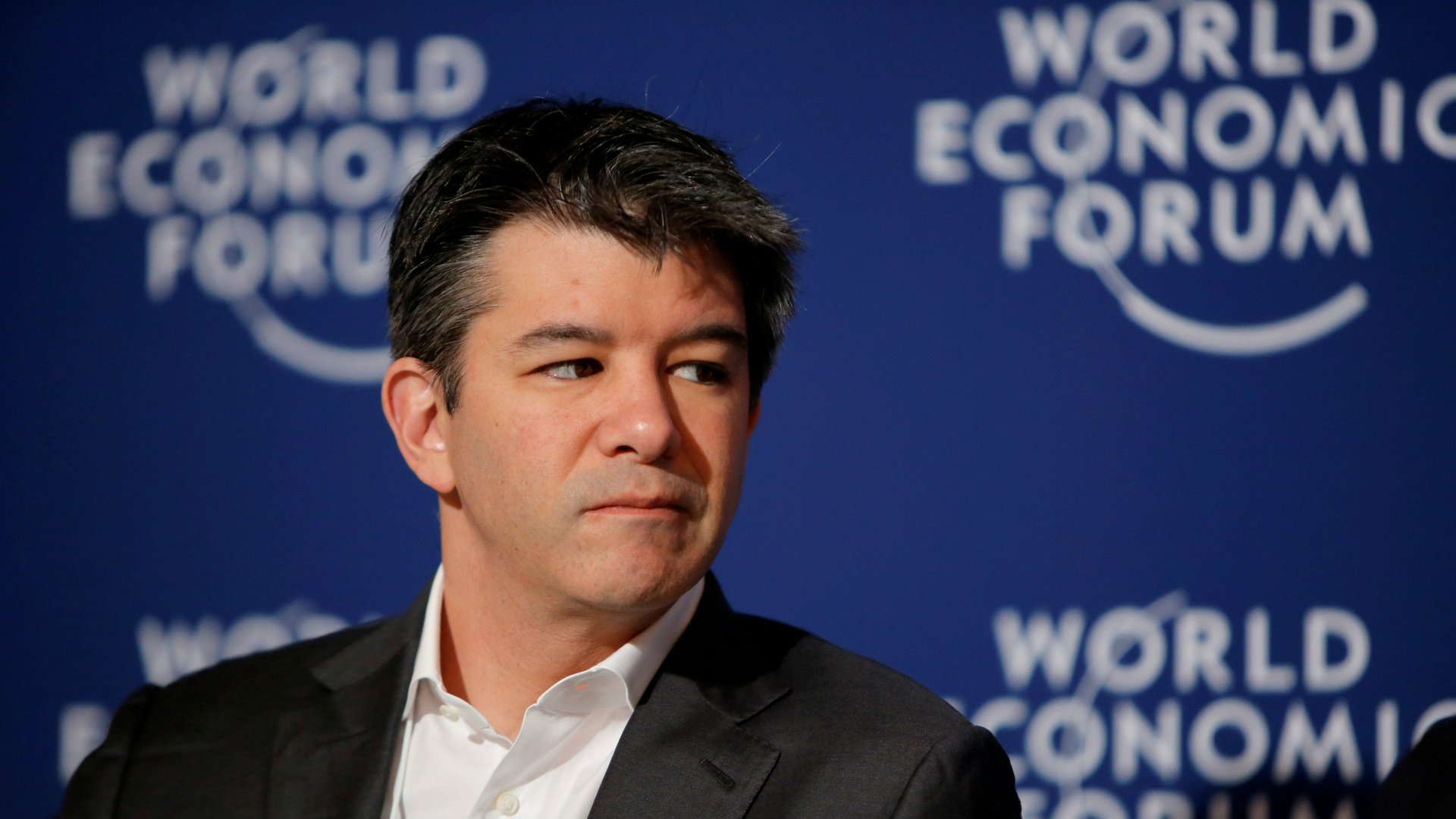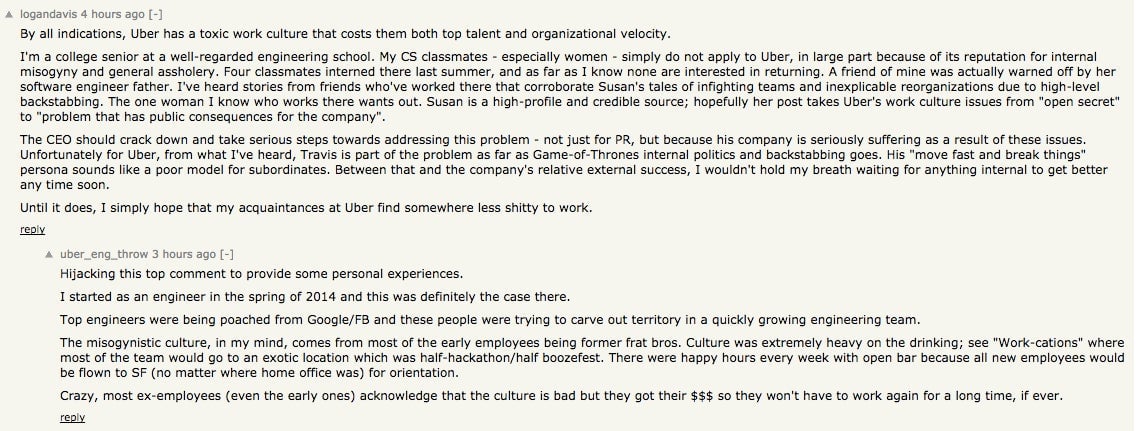A female engineer’s account of working at Uber alleges rampant sexism repeatedly ignored by execs and HR
Those clamoring to #DeleteUber will have one more reason to do so.


Those clamoring to #DeleteUber will have one more reason to do so.
Susan Fowler, a software engineer based in Berkeley, California, published a lengthy account of a year’s time at Uber that involved ongoing sexual harassment and an HR department reluctant to take action against it. The story, published on her personal blog on Sunday night (Feb. 19) local time, quickly began making waves in Silicon Valley. It paints the company as a leaderless mess plagued with rampant misogyny.
Fowler joined Uber in November 2015 as a site reliability engineer. Immediately after she finished training, she says, one of her managers made unsolicited sexual advances towards her:
On my first official day rotating on the team, my new manager sent me a string of messages over company chat. He was in an open relationship, he said, and his girlfriend was having an easy time finding new partners but he wasn’t. He was trying to stay out of trouble at work, he said, but he couldn’t help getting in trouble, because he was looking for women to have sex with. It was clear that he was trying to get me to have sex with him, and it was so clearly out of line that I immediately took screenshots of these chat messages and reported him to HR.
Fowler then says that HR refused to reprimand the manager because it was his first such offense and he was a high performer. She was given the choice to remain on the team but risk receiving a poor performance review from the manager that was reported, or move to another team. Fowler chose the latter. She later learned the manager had acted similarly towards other women, all without consequence from HR.
Over the next few months, I began to meet more women engineers in the company. As I got to know them, and heard their stories, I was surprised that some of them had stories similar to my own. Some of the women even had stories about reporting the exact same manager I had reported, and had reported inappropriate interactions with him long before I had even joined the company. It became obvious that both HR and management had been lying about this being “his first offense,” and it certainly wasn’t his last. Within a few months, he was reported once again for inappropriate behavior, and those who reported him were told it was still his “first offense.”
In addition to issues with her manager, Fowler depicts Uber as a place generally hostile towards women. She recounts another incident where female members of her engineering group—about six in total, according to Fowler—weren’t given leather jackets along with all the male employees because the company couldn’t get a bulk discount for women’s sizes, as they did with men’s:
See, earlier in the year, the organization had promised leather jackets for everyone in [the] organization, and had taken all of our sizes; we all tried them on and found our sizes, and placed our orders. One day, all of the women (there were, I believe, six of us left in the org) received an email saying that no leather jackets were being ordered for the women because there were not enough women in the organization to justify placing an order. I replied and said that I was sure Uber SRE could find room in their budget to buy leather jackets for the, what, six women if it could afford to buy them for over a hundred and twenty men. The director replied back, saying that if we women really wanted equality, then we should realize we were getting equality by not getting the leather jackets.
Fowler adds that rampant political maneuvering at Uber further contributed to a toxic work culture.
It seemed like every manager was fighting their peers and attempting to undermine their direct supervisor so that they could have their direct supervisor’s job. We all lived under fear that our teams would be dissolved, there would be another re-org, and we’d have to start on yet another new project with an impossible deadline. It was an organization in complete, unrelenting chaos.
Uber CEO travis Kalanick described Fowler’s account as “abhorrent” and called on Uber’s chief HR officer to launch an investigation.
Fowler’s post has caused an explosive online discussion about sexual harassment in the workplace, as well as Uber’s workplace culture. At Hacker News, the online forum of choice for Silicon Valley engineers, many commenters on the thread confirm Fowler’s description of Uber. One user even wrote that she knows women who will not apply for jobs at Uber due to its reputation for misogyny.

Others in the tech industry took to Twitter to express support for Fowler. Many noted that many women at other companies likely experience what Fowler went through.
Uber is often maligned for how it treats its drivers and its disregard for the law. But critics have also decried its reckless company culture, and have accused it of enabling sexism. In a 2014 GQ profile, Kalanick jokingly referred to the concept of “women on demand” as “Boob-er.” In 2012, the company drew ire when it published a blog post calculating the frequency of one-night stands among its users.
Fowler’s account, however, marks the first thorough account of workplace sexism at Uber from the perspective of an actual employee. For outsiders, her story will confirm what many suspect—that Uber marks the epitome of “bro culture” run amok, where norms for treating workers well are ignored in the name of “moving fast and breaking things.”